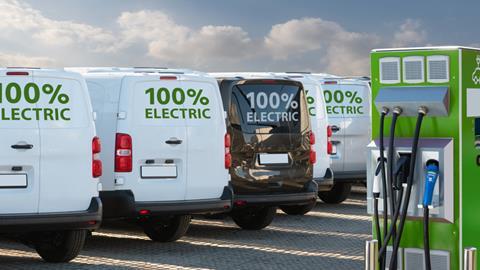An insistence by some van manufacturers that operators order a proportion of electric models has created problems for firms who cannot yet run them, according to the Association of Fleet Professionals (AFP).
The government’s zero emission vehicle (ZEV) mandate forces van makers to ensure 10% of their sales are electric variants in 2024.
This legal requirement rises rapidly to 70% by 2030 and then 100% by 2035.
But the AFP said since the legislation was introduced in January, it was piling on problems for operators who were not ready to make the transition.
Paul Hollick, AFP chair, said: “It’s quickly becoming a widespread practice that when a fleet wants to order a quantity of vans, manufacturers are asserting that a percentage is electric – often 10% to reflect the 2024 ZEV mandate.
“The problem is that some fleets just don’t have a role for these electric vans within their business.
“Their payload and range requirements mean there is no operational profile for which the electric van can be practically used, or there is no suitable charging infrastructure.”
Hollick said fleets were being presented with a conundrum: find a manufacturer that wasn’t insisting on order quotas, continue operating their fleet assets for longer, or buy electric vans and try and use them – or just park them up.
“All of these courses of action are far from ideal,” he said. “Changing van supplier can be quite an arduous task for fleets, meaning that the whole van unit has to be rethought including fitting out. Hanging onto older vans that really need to be replaced means that you are likely to experience problems with reliability and has potential risk management and environmental implications.
“Lastly, it’s just not viable to buy expensive assets like electric vans and not really use them in the operational roles where you actually need a solution.”
Hollick added: “We fully understand why manufacturers are having to introduce order quotas of this type – it is very much a result of the legislation.
“In a sense, we are seeing the policy in action but the issue is that there are fleets for which electric vans don’t just mean acceptable compromises but effectively won’t work. For that to change, sizeable advances in both the capabilities of electric vans and their supporting charging infrastructure need to happen.”

At the end of 2023, the SMMT highlighted that meeting the mandate could be a struggle for van makers after its own figures revealed a fall in battery electric van registrations for the second month.
It called on the government to help accelerate the roll out of public charge points along with a national delivery plan that considers the specific needs of larger vans.














